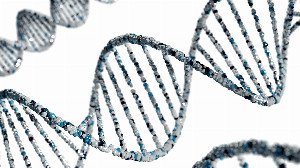Author
On Coseriu’s legacy
Linguistics
ENERGEIA. ONLINE JOURNAL FOR LINGUISTICS, LANGUAGE PHILOSOPHY AND HISTORY OF LINGUISTICS
Introduction
On coseriu’s legacy. Explore Eugenio Coseriu's influential theory of language and linguistics, analyzing consciousness, functional explanation, and his humanistic perspective. Contrasts with physicalism.
Abstract
This article examines Eugenio Coseriu’s overall theory of language and linguistics, based on his 1974 book Synchronie, Diachronie und Geschichte (originally in Spanish, in 1958). The topics that are singled out for analysis include the role of consciousness and the nature of functional explanation. Coseriu’s ideas are shown to have strong affinities with those of Hermann Paul and William Dwight Whitney. His humanistic conception of linguistics is vindicated vis-à-vis its rivals, i.e. physicalism and Darwinism.
Review
This article promises a timely and insightful re-examination of Eugenio Coseriu’s profound theory of language and linguistics, grounded in his foundational 1974 work, *Synchronie, Diachronie und Geschichte*. The author judiciously selects key theoretical dimensions, focusing on the role of consciousness and the nature of functional explanation, which are central to understanding Coseriu's distinctive approach. By drawing explicit connections between Coseriu's ideas and those of historical figures such as Hermann Paul and William Dwight Whitney, the article positions itself as a valuable contribution to the intellectual history of linguistics, offering a nuanced perspective on the lineage of linguistic thought. A significant strength outlined in the abstract is the article's commitment to defending Coseriu's humanistic conception of linguistics. This vindication, set against the backdrop of rival paradigms like physicalism and Darwinism, suggests a robust engagement with the philosophical underpinnings of linguistic theory. Such an approach is particularly pertinent in contemporary discussions, where reductionist tendencies often prevail. The exploration of these complex theoretical debates, anchored in a careful reading of Coseriu, will likely appeal to scholars interested in the philosophy of language, the history of linguistics, and those seeking to articulate a more holistic understanding of human language. For the article to fully realize its potential, a complete review would certainly delve into the specific arguments deployed to "vindicate" Coseriu’s humanism against physicalism and Darwinism, ensuring that these competing perspectives are treated with sufficient nuance rather than as mere strawmen. Furthermore, the detailed development of the "strong affinities" with Paul and Whitney will be crucial; the nature of these connections—whether direct influence, shared intellectual climate, or conceptual parallels—will need to be thoroughly explicated. Finally, given the existing body of scholarship on Coseriu, the article's specific innovative contribution or novel interpretative framework, beyond a general overview, would be a critical aspect for the full paper to articulate clearly.
Full Text
You need to be logged in to view the full text and Download file of this article - On Coseriu’s legacy from ENERGEIA. ONLINE JOURNAL FOR LINGUISTICS, LANGUAGE PHILOSOPHY AND HISTORY OF LINGUISTICS .
Login to View Full Text And DownloadComments
You need to be logged in to post a comment.
Top Blogs by Rating
The Geological Secret in Your...
By Sciaria
'Um' Isn't Just a Stumble: Wha...
By Sciaria
The Ageless Enigma: What Biolo...
By Sciaria
Favorite Blog
Beyond Silicon: How Living Mat...
By Sciaria
Your Dynamic DNA: The Adapting...
By Sciaria
Beyond the Blueprint: Why Your...
By Sciaria
Related Research
Da correspondência de verbos em dental com nomes em sibilante
Spatial-temporal epidemiology of covid-19 in aceh, indonesia: a statistical perspective
Stimulation of the development of moral and social aspects in efforts to improve the mental health of school-age children
Share
Notice Board
- IOT - AI MENTORING AND DIFFUSION IN THE DEVELOPMENT OF DIGITAL-BASED TEACHING DEVICES FOR PAK TEACHERS
- BILAGA 3. DONNERSKA INSTITUTETS PRISTAGARE
- SUSTAINABILITY STATUS OF GILLNET CAPTURE FISHERIES BASED ON ECONOMIC, ECOLOGICAL, TECHNOLOGICAL, INSTITUTIONAL, AND SOCIAL ASPECTS IN PANIPAHAN PASIR LIMAU KAPAS SUB-DISTRICT ROKAN HILIR DISTRICT




